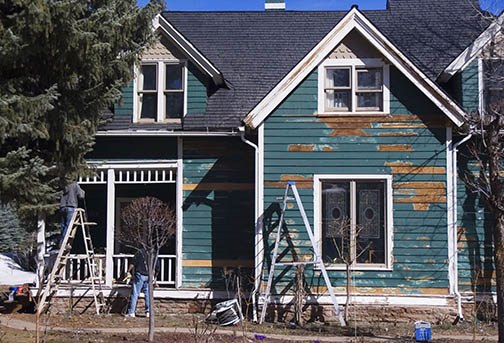Buying Real Estate vs. Buying Stocks: Here’s Why a Home Should Be Your Priority
 Once you’re done with debt and you’ve started to save, it’s commonly the case that you’ll start hearing about the risks and rewards of investing in stocks or real estate. Unfortunately, it can be difficult for many people to know what type of investment is going to work better for them down the road. If you’re currently considering what you should put your money into, here are some reasons you may want to turn to real estate.
Once you’re done with debt and you’ve started to save, it’s commonly the case that you’ll start hearing about the risks and rewards of investing in stocks or real estate. Unfortunately, it can be difficult for many people to know what type of investment is going to work better for them down the road. If you’re currently considering what you should put your money into, here are some reasons you may want to turn to real estate.
It’s Something You Can See
While investing in the stock market will give you the ability to invest as little or as much as you want, a home will take a monthly payment and a down payment in order to make the deal. Fortunately, this means that you’ll be investing money every month into something that belongs to you and that you can see. A home is not only something you can invest in all the time, it will enable you to avoid putting money into rent that you’ll never get back.
Saving Money On Tax Breaks
There may be a certain amount of volatility with any market investment, but when it comes to buying a home you also have the benefit of tax breaks that are designed specifically for homeowners. In addition to the ability to deduct interest on your main residence if you’ve lived in your property for a minimum of two of the last five years, you’ll also be able to sell it tax-free. Investing in a home certainly takes savings, but there are many available tax benefits that can save money.
A Sense Of Security
Many people want to invest in a home because it offers up a piece of something that they can really own. However, another appealing aspect of having a home is that you’ll be removed from the day-to-day rumblings of the stock market. Investing can make people more than a little weary, even if they’re knowledgeable about the markets, and this can cause people to sell off and lose money when the going gets tough.
Investing in real estate and the stock market both involve some degree of financial risk, but you might not be aware that there are several added benefits of buying a home. From the tax break incentives to the sense of security, real estate can often be the better financial route to take.
 With all of the home renovation and fixer-upper shows on television, the idea of completely renovating and re-doing an old home can seem like an enticing premise. Unfortunately, investing in the wrong fixer-upper can mean an awful lot of expenditure without the added financial rewards. Whether you’re considering investing down the road or are ready to dive in, here are a few things to consider first.
With all of the home renovation and fixer-upper shows on television, the idea of completely renovating and re-doing an old home can seem like an enticing premise. Unfortunately, investing in the wrong fixer-upper can mean an awful lot of expenditure without the added financial rewards. Whether you’re considering investing down the road or are ready to dive in, here are a few things to consider first. When you’re just moving into a neighborhood, it can be hard to know exactly what you’re getting into. Certainly, you can see the sights for yourself and read about your new community online, but there are still things that may not be readily available. If you’re looking for the cold, hard facts on the safety of your neighborhood, look no further than the following websites for the things you’ll want to know.
When you’re just moving into a neighborhood, it can be hard to know exactly what you’re getting into. Certainly, you can see the sights for yourself and read about your new community online, but there are still things that may not be readily available. If you’re looking for the cold, hard facts on the safety of your neighborhood, look no further than the following websites for the things you’ll want to know.